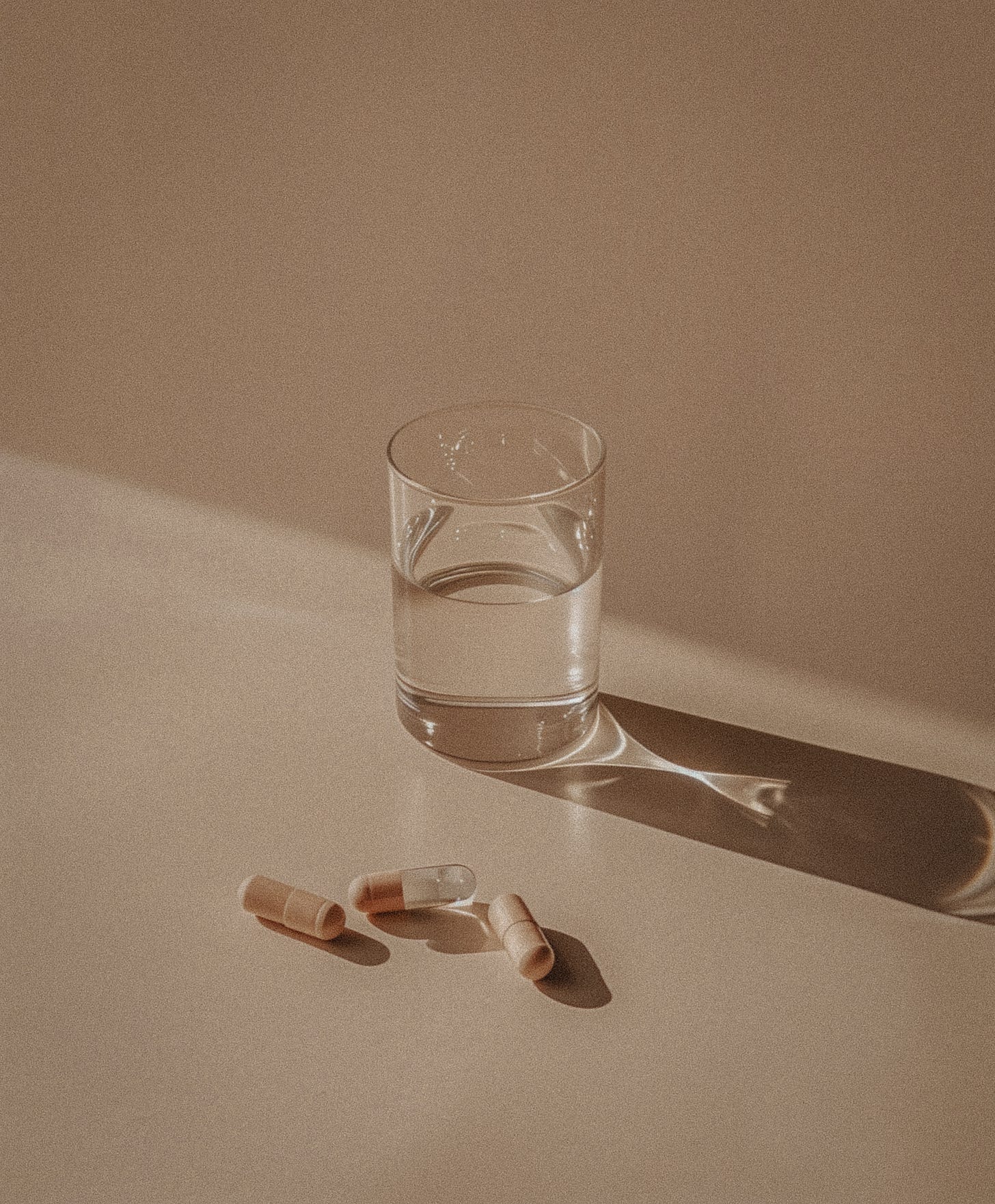I’ve been anxious lately.
Not about one big thing, but about a thousand small things, mostly nameless and just out of reach. This isn’t the adorable kind of anxiety with which neurotic movie characters win our hearts. It’s the free-floating kind that creeps in out of fucking nowhere and coils itself around you like a boa constrictor.
For some, its squeeze elicits anger, a classic fight instinct. For others, it’s avoidance, which is flight. And for me? Well, my psychological state has always been my body’s favorite source material. She’s a performer, baby. And when it comes to anxiety, breathing – or more specifically, the inability to breathe – is my body’s favorite refrain.
The first time it happened, I was 11. Wearing Capezio tights and a black leotard, carrying pink pointe shoes in one hand and a Diet Peach Snapple in the other, I was going through the motions of a completely normal day, walking into my afternoon ballet class when, all of a sudden, I felt the breath catch in my throat. I inhaled more air through my nostrils, and when that didn’t work, through my open mouth, but the oxygen refused to move past my trachea.
Panic mounting, I raised my shoulders up to my ears and arched my back to expand my chest, trying desperately to send air into my screaming lungs while also maintaining the appearance that I was just casually stretching. The more I struggled, the tighter the vise grip. Finally, instinct led me to a dark corner of the studio, out of the path of the other dancers. Time slowed, muscles unclenching, shoulders dropping, and a sense of softening unlocking what forcing never could.
What the hell just happened?
It was asthma. I was sure of it. “It’s not asthma,” the doctor said, after performing a thorough exam.
Nonetheless, he sent me on my way with an inhaler. I used it from time to time when that feeling of breathlessness crept in. Was there anything actually in the inhaler? We’ll never know. The respiratory version of a sugar pill, perhaps. But it worked.
That’s how powerful belief can be.
In an effort to channel this power of belief, performers often spout aphorisms like, “anxiety is excitement about the future” or my personal favorite, “anxiety is energy without breath.” The idea being that intellectually reframing the physical sensation of anxiety will quell the symptoms.
But unless these phrases take root in your subconscious and fundamentally alter your belief patterns, they’re never going to register in your lived experience.
With the inhaler, I wasn’t simply telling myself, “The doctor said you don’t have asthma. Logically, you should have no trouble breathing.” I was putting my body through the motions of using a device that I fundamentally believed would allow greater airflow. Not unlike that trick where you close your eyes and envision a bright yellow lemon, and then imagine yourself cutting a slice of that lemon and tasting the tartness of the juice – and then you’re literally salivating, even though the whole thing is in your mind. But we don’t walk around dreaming of lemons. We walk around thinking we’re under attack.
I saw a meme the other day where a woman in casual business attire sat at a coffee shop, reading an email on her phone. The caption? Trying to convince my brain that it’s not a bear chasing me, it’s just an email. The email isn’t a bear, rush hour traffic isn’t a wildfire, and news from across the world isn’t physically playing out on your living room couch. You know this. Your body does not.
My children’s school recently hosted a seminar called “Disarming Anxiety.” The speaker, a parent who’s also a therapist specializing in anxiety, shared a number of interesting tidbits. “Anxiety wants us to speed up,” he explained. “If you can support your kids in slowing down, that helps. Go straight to the breath if you can.”
Where was this guy when I was a kid?! In the ’90s, they were like, “Go eat some Lunchables and listen to Nirvana; you’ll be fine.” Speaking of Nirvana, depression was by far the dominant issue people presented with in and around the ’90s. In the last couple of decades, though, and certainly since the pandemic, anxiety has outpaced depression. This from the anecdotal experience of the aforementioned therapist in his thriving UCLA practice, as well as from actual statistics that he cited but that I neglected to record because I was too busy thinking about anxiety.
This is not new for me. Managing anxiety is part of being a performer. You can’t avoid it, nor should you.
A little anxiety can be good! It switches on the engine that helps you study for the exam, rehearse the keynote speech, and show up to practice before the championship game. But any medicine, in excess, becomes a poison.
Anxiety compelled you to rehearse the speech? Great. Anxiety made your mouth so dry you couldn’t get a single word out on the big day? Not great.
Before important auditions, I’ve known actors to use mindfulness, breathwork, chanting, EFT tapping, and the superman pose. Others take tequila shots or even Xanax.
Once I popped a beta blocker, gifted to me by a friend ahead of a big deal audition for a big deal show. Beta blockers work by blocking the effects of adrenaline on beta receptors, therein helping to regulate the heart’s rhythm and, for our purposes here, the physical manifestations of anxiety. Say goodbye to your racing heart, dry mouth, and sweaty palms! I didn’t get the job. What I did get were some lowkey heart palpitations and a hazy feeling like I was a teeny bit drunk. Relaxed? You bet. Functional? Meh. After the audition, my best friend took me to a sushi place in a Hollywood strip mall and sat with me until I was coherent.
Following that experience, I tend to stick to things like crystals, CBD tinctures, and Lion’s Breath, which is a great exercise if you want to soothe your nerves and disquiet your competition. (Kidding. Everything’s on Zoom now.)
Sometimes I wonder whether pursuits that require this much psychospiritual scaffolding are even worth it. But then, anxiety isn’t reserved for big auditions. It’s something most of us feel every single day.
The sympathetic nervous system gets a lot of negative press, but it’s not all bad. I mean, what an evolutionary blessing to possess superhuman force (fight), superhuman speed (flight), and superhuman invisibility (freeze) when confronted with imminent, life-threatening danger. And yet, in our fast-paced world, stimuli that are objectively not dangerous register in the body as imminent, life-threatening dangers. Further, slowing down has become anathema, meaning that our collective default mode is fight or flight. No one is designed to exist in this state all the time. It robs us of our sweet, parasympathetic “rest and digest” time.
We’re anxious, we’re reactive and, by my calculus, we’re all at risk of drowning in our own cortisol. Death by email. It’s tragic, really, because it seems so avoidable.
The therapist hosting the seminar was a big proponent of exposure therapy. He was referring to exposure to real-world social situations that we are no longer comfortable in because we spend too much time on devices. Confidence, he said, is not summoned out of thin air. Confidence comes with walking through the situation and realizing that it didn’t cause you to spontaneously combust. He’s got a point. After all these years, auditions rarely ever make me anxious.
When it comes to the more free-floating kind of anxiety, the therapist recommended modeling for our children that we don’t need certainty to live freely. We don’t?! In fact, there’s no such thing as black and white. Wait, what?! So remove the “always” and the “nevers” and the “everyones” and the “no ones” from your vocabulary. Cuddle up to the fact that no one has any idea what’s going to happen. And edit the stories you tell yourself as if your life depends on it.
P.S. I’m in the season of life where weekends are dominated by children’s birthday parties. For reasons I won’t get into here (loud noises! bounce houses! sugar-fueled meltdowns! parenting politics!) these parties fan the flames of my anxiety. I usually spend the mornings buzzing around the house, getting everyone fed with a high-protein breakfast to preempt the truckloads of sugar they’ll consume later, sorting and wrapping presents, remembering names, and reminding everyone to say “please” and “thank you” and, for the love of God, to keep their spit in their mouths and their hands to themselves. By the time I leave the house, cracked out on three cups of coffee and no food, I’m twitchy and sweating through my clothes. Not cute. Last week, I chose differently. I did all the prep days ahead of time. I let everyone eat whatever the hell they wanted for breakfast. And I spent the morning taking… A BATH. Who is she?! A scalding hot bath that I knew would activate my parasympathetic nervous system for the day ahead. Reader, it worked. I went to two birthday parties and one class picnic and felt… peaceful.







For me, having Xanax (and not always taking it) in the medicine cabinet can be my mental version of a sugar pill 😊. This Substack is so relatable! Thank you Brooke!
“Lion’s Breath, which is a great exercise if you want to soothe your nerves and disquiet your competition” hahaha! I enjoyed reading about anxiety more than I thought I would. Also, the party part was relatable. Definitely working on the keep spit in mouth here with the kiddo. Now imagining doing Lions Breath every time there is inappropriate spitting.